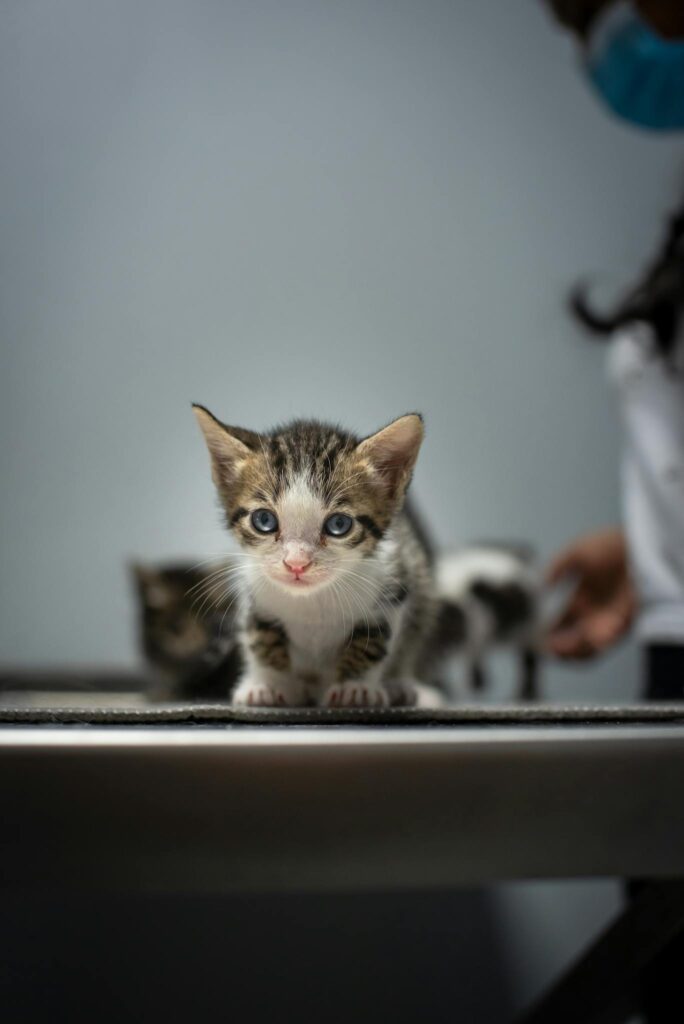Assessing Kittens: A Comprehensive Guide to Kitten Health
Assessing kittens requires a keen eye and a gentle touch. Bringing a new kitten into your home is an exciting time, filled with playful antics and endless cuddles. However, before the fun begins, it’s crucial to perform a thorough health assessment to ensure your new furry friend is healthy and thriving. This guide will walk you through the essential steps to assess your kitten’s wellbeing, helping you identify potential issues early and provide the best possible care.
Physical Examination: What to Look For
A comprehensive physical examination forms the cornerstone of assessing kittens. Begin by gently handling the kitten, allowing it to explore your hands and gradually become accustomed to your touch. Observe its behavior: is it alert and responsive, or lethargic and withdrawn? A healthy kitten will be playful and curious, showing interest in its surroundings. Conversely, listlessness or excessive sleeping could indicate underlying health problems.
Next, examine its coat. A healthy kitten’s fur should be smooth, shiny, and free from matting or excessive dryness. Dull, patchy fur, or excessive shedding can be a sign of nutritional deficiencies, parasites, or skin conditions. Carefully check the skin for any redness, irritation, or the presence of fleas or ticks.
Move on to the eyes and ears. The eyes should be bright and clear, free from discharge or cloudiness. Any redness, swelling, or discharge necessitates veterinary attention. Similarly, the ears should be clean and free from excessive wax or a foul odor. Dark brown or black, waxy build-up is common, but excessive build-up could signal an ear infection. Gently inspect the inside of the ears for redness, swelling, or any unusual growths.
Examine the kitten’s nose. It should be moist and cool. A dry nose isn’t necessarily a sign of illness, but excessively dry or crusty noses warrant closer inspection. Check the mouth and teeth; healthy gums are pink and moist. Pale gums can suggest anemia, while excessively red gums might indicate an infection.
Feel the kitten’s body. Gently palpate its abdomen, feeling for any unusual lumps, bumps, or tenderness. The abdomen should feel soft and supple, not distended or hard. Check its lymph nodes (located under the jaw and behind the knees). Slightly enlarged, movable lymph nodes are often normal, but excessively swollen, hard, or painful lymph nodes need veterinary attention.
Finally, assess the kitten’s weight and body condition. A healthy kitten should have a well-proportioned body, with a visible waistline and not appearing too thin or overly plump. Use a pet scale to obtain accurate weight measurement. Compare this to average kitten weight charts for its age and breed.
Assessing Kittens: Behavioral Indicators
While the physical examination is crucial, assessing kittens also involves observing their behavior. A healthy kitten is generally playful, active, and curious. It should have good coordination and reflexes, exhibiting normal responses to stimuli.
However, several behavioral red flags should prompt concern. These include:
Lethargy and listlessness: Excessive sleeping, lack of interest in playing, or generally subdued behavior.
Loss of appetite: Refusal to eat or decreased food intake.
Vomiting or diarrhea: These can indicate gastrointestinal issues or infections.
Frequent sneezing or coughing: May suggest respiratory problems.
Difficulty breathing: This is a serious sign and requires immediate veterinary attention.
Unusual vocalization: Excessive meowing, crying, or whimpering.
When to Seek Veterinary Care
It’s crucial to contact your veterinarian if you notice any of the red flags mentioned above during your kitten assessment. Even seemingly minor issues can rapidly escalate if left untreated. Don’t hesitate to schedule a check-up, especially if you are unsure about anything. Early intervention is key to ensuring a long and healthy life for your new companion. Your vet will perform a more thorough examination, run diagnostic tests if needed, and provide appropriate treatment and care.
Beyond the Initial Assessment: Ongoing Monitoring
Assessing kittens is not a one-time event; it’s an ongoing process. Regularly monitor your kitten’s health, paying attention to its behavior, appetite, and physical condition. Schedule regular check-ups with your veterinarian for vaccinations, parasite prevention, and overall health monitoring. A healthy and happy kitten contributes significantly to enriching your life and providing immeasurable joy and companionship. With proactive monitoring and attentive care, you can ensure your furry friend enjoys many years of happy and healthy living.

